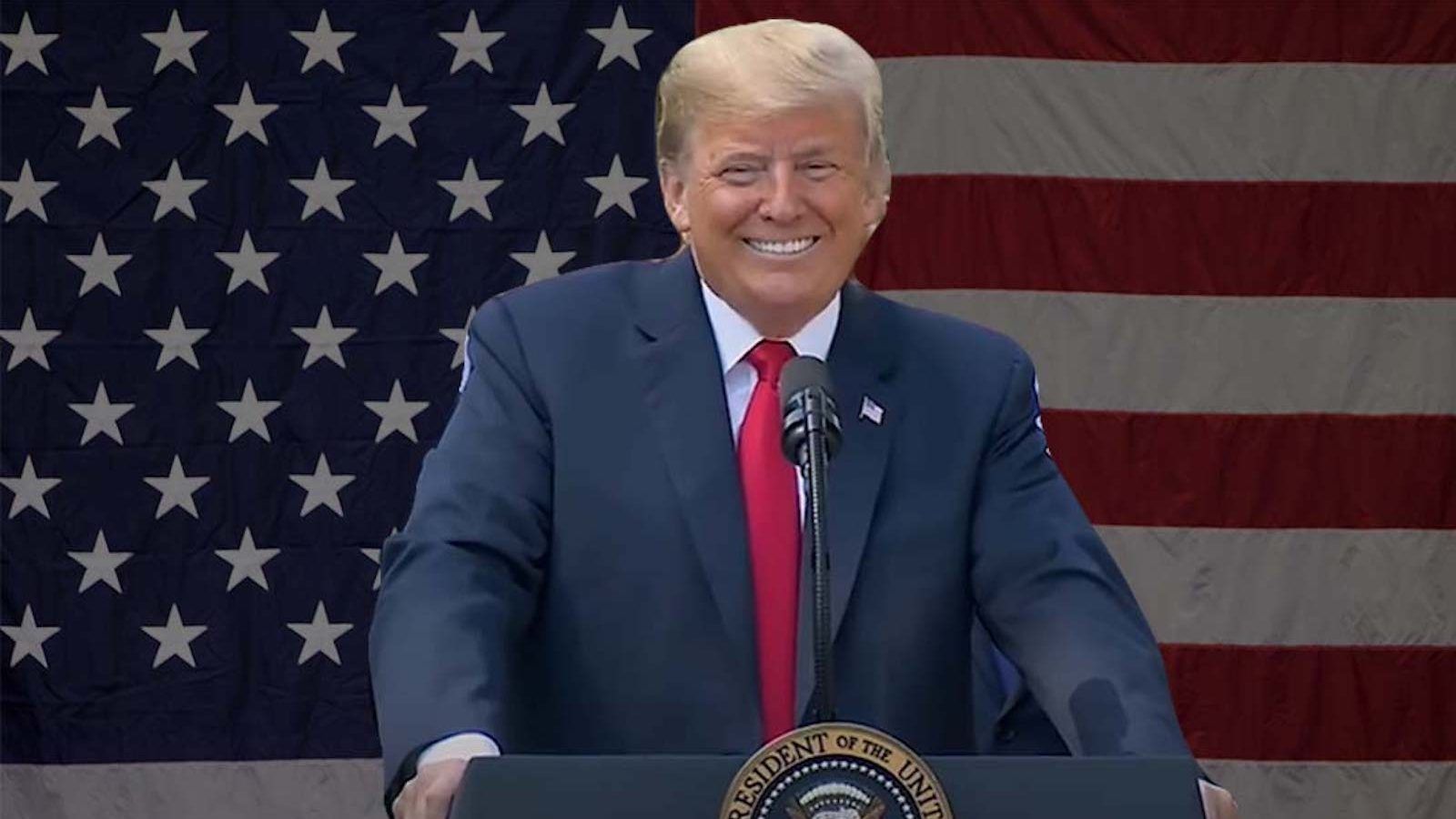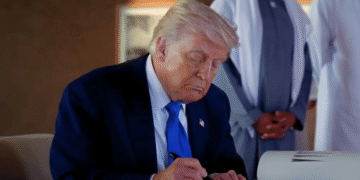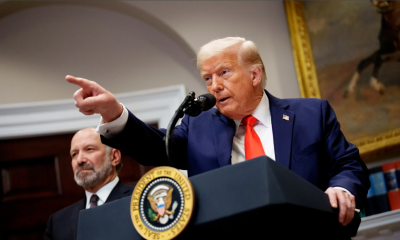Latest
BREAKING: Supreme Court Hands Trump Biggest Win Yet, “Rogue Judges” and “Nationwide Injunctions” Clearly ILLEGAL!

In a landmark 6–3 decision, the U.S. Supreme Court just delivered what might be the biggest legal victory yet for President Trump — a decision that could reshape how executive power operates during his second term.
Writing for the conservative majority, Justice Amy Coney Barrett ruled that nationwide injunctions issued by lower courts — often by a single federal judge — are unconstitutional. This means that district court judges can no longer block a president’s entire policy nationwide based on one lawsuit filed by a few plaintiffs.
A Shift in Power — Away from Rogue Courts
The ruling directly challenges a tactic that has long frustrated Trump’s team: nationwide injunctions from left-leaning judges, often appointees of Obama or supported by figures like George Soros. These injunctions had become a go-to method for stopping Trump-era executive actions — sometimes issued by judges in districts with little connection to the policy itself.
Barrett made it clear: federal courts are meant to resolve specific legal disputes, not act as nationwide overseers of executive decisions. She explained that such sweeping blocks are not rooted in the Constitution or in the Judiciary Act of 1789, and represent a dangerous expansion of judicial power.
The Case: Birthright Citizenship Order at the Center
This specific case stemmed from President Trump’s executive order seeking to end birthright citizenship for children of illegal immigrants and those on temporary visas. Lower courts issued nationwide blocks preventing the order from taking effect, but the Supreme Court ruled that those broad injunctions were improper.
Importantly, the Court did not weigh in on the constitutionality of ending birthright citizenship itself — that issue will likely come before the Court in the future. For now, the decision only strikes down the ability of lower courts to freeze such orders on a nationwide scale.
A Heated Dissent and a Strong Rebuttal
Liberal Justices Sotomayor, Kagan, and Jackson dissented strongly. Justice Jackson argued that the ruling could allow unconstitutional policies to remain in place until each affected person files their own lawsuit — a process that could take years and deny people justice in the meantime.
Justice Barrett directly pushed back against that view, accusing Jackson of wanting an “imperial Judiciary,” where judges, not elected officials, run the country. She called the dissent’s vision a power grab that undermines the balance of powers in the Constitution.
What It Means for Trump and the Future
The bottom line? This ruling is a game-changer. It removes a powerful tool that was often used to stall Trump’s policies — and opens the door for him to reintroduce executive actions that were previously halted.
One of those may be the push to end birthright citizenship. With the lower court injunction now ruled illegal, the order is effectively back on the table, and the legal fight will likely head to the Supreme Court again in the future for a final decision.
Attorney General Pam Bondi called the ruling a major victory for presidential authority. She said it will end the “endless” legal blockades used to stall Trump’s agenda and restores proper constitutional limits on the courts.
In Summary
This decision doesn’t just benefit Trump — it shifts the balance of power back toward the executive branch and away from unelected judges issuing broad national rulings. It ensures that legal challenges will have to be more targeted and tied directly to the plaintiffs involved.
For Trump supporters and constitutional conservatives, this is a huge win — and perhaps a glimpse of just how different his second term might be.
-

 Latest7 months ago
Latest7 months ago𝗔𝗹𝗹 𝗼𝗳 𝘁𝗵𝗲 𝗻𝗮𝗺𝗲𝘀 𝗺𝗲𝗻𝘁𝗶𝗼𝗻𝗲𝗱 𝗶𝗻 𝘁𝗵𝗲 𝗻𝗲𝘄 𝗝𝗲𝗳𝗳𝗿𝗲𝘆 𝗘𝗽𝘀𝘁𝗲𝗶𝗻 𝗱𝗼𝗰𝘂𝗺𝗲𝗻𝘁𝘀.
-

 Latest10 months ago
Latest10 months agoParis Hilton and Kanye Connected? “They Held Me Down, Spread My Legs…” [WARNING: Graphic]
-

 Latest8 months ago
Latest8 months agoHistoric Verdict Rocks America — Donald Trump Officially Convicted in a Turning Point No One Saw Coming
-

 Latest9 months ago
Latest9 months agoAlex Jones Exposes What’s Going On With Dan Bongino
-

 Latest7 months ago
Latest7 months agoProminent Republican Politician SWITCHES To Democrat Party
-

 Latest7 months ago
Latest7 months agoBREAKING: Supreme Court Responds to Gov. Greg Abbott’s Emergency Petition to REMOVE Runaway Democrat Leader
-

 Latest7 months ago
Latest7 months agoBOMBSHELL: President Trump Confirms Joe Biden Dead Since 2020!
-

 Latest8 months ago
Latest8 months agoBREAKING: President Trump drops a new message for America — and it changes everything.
